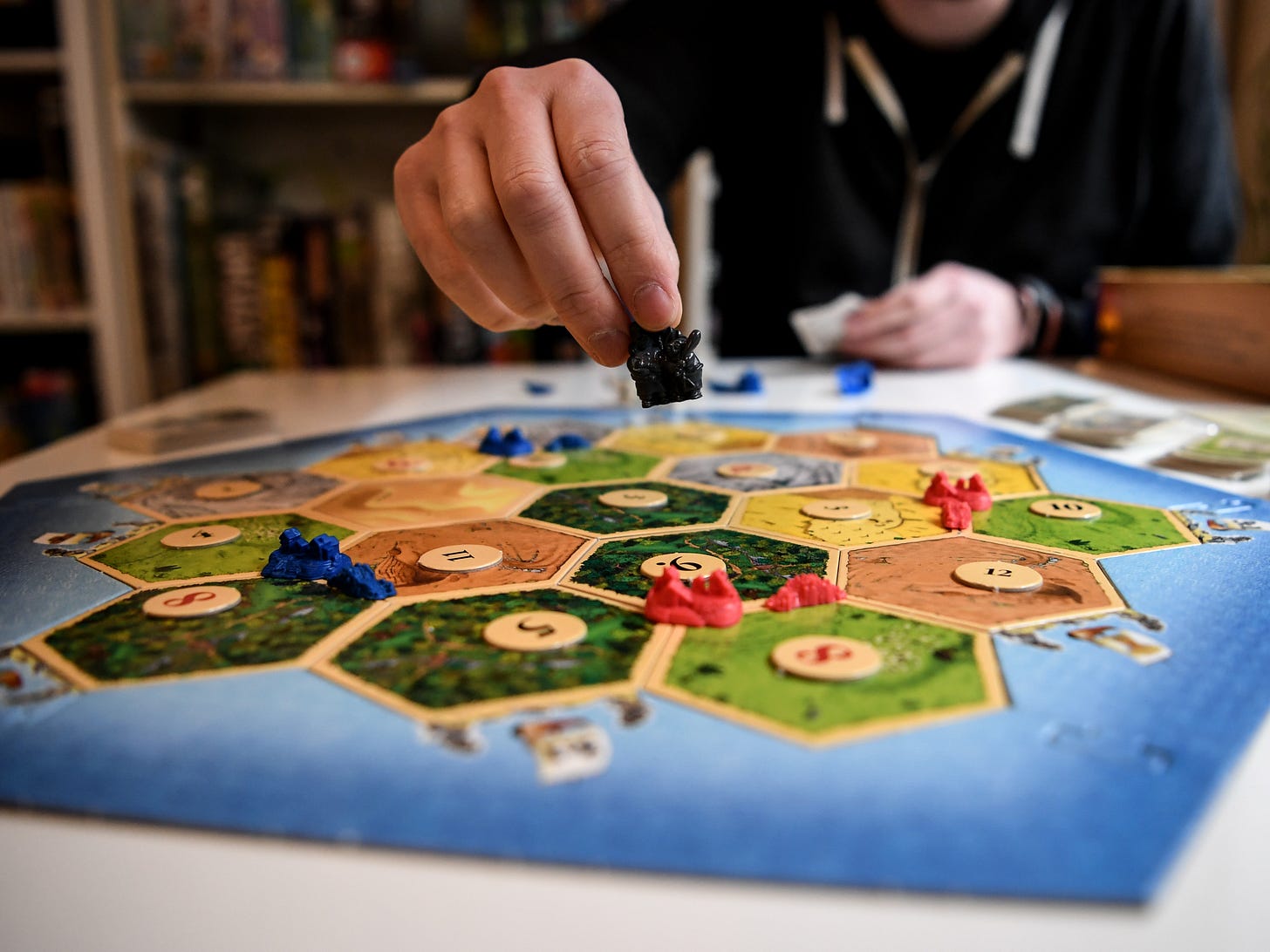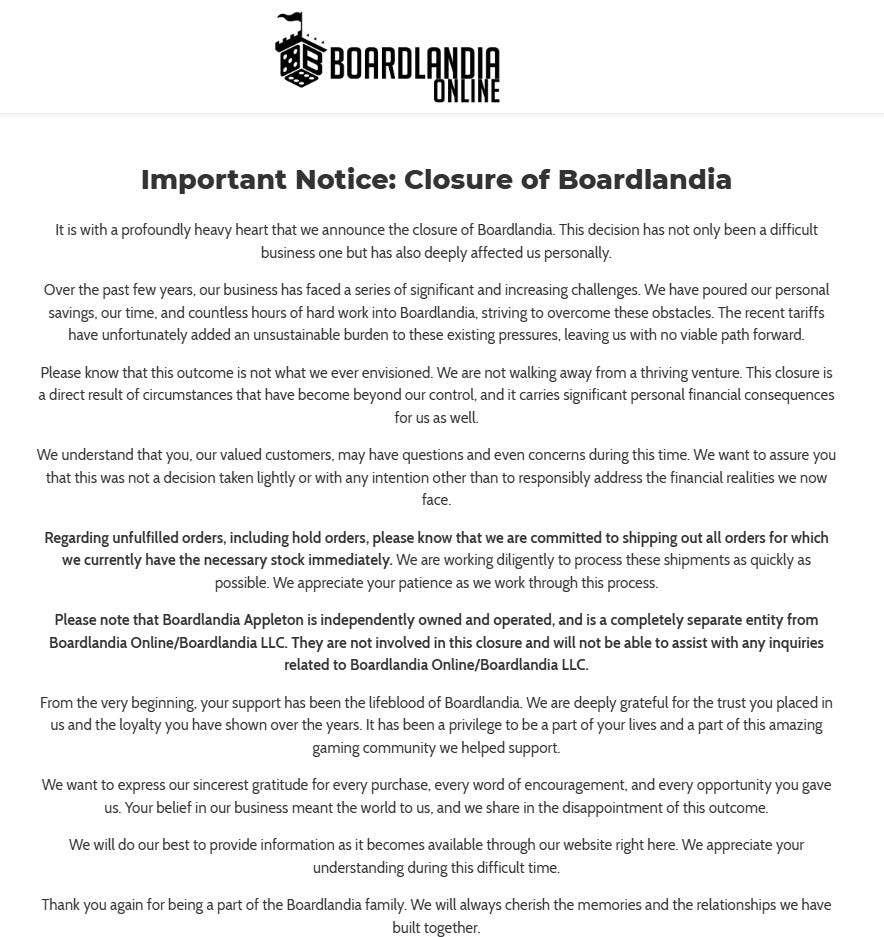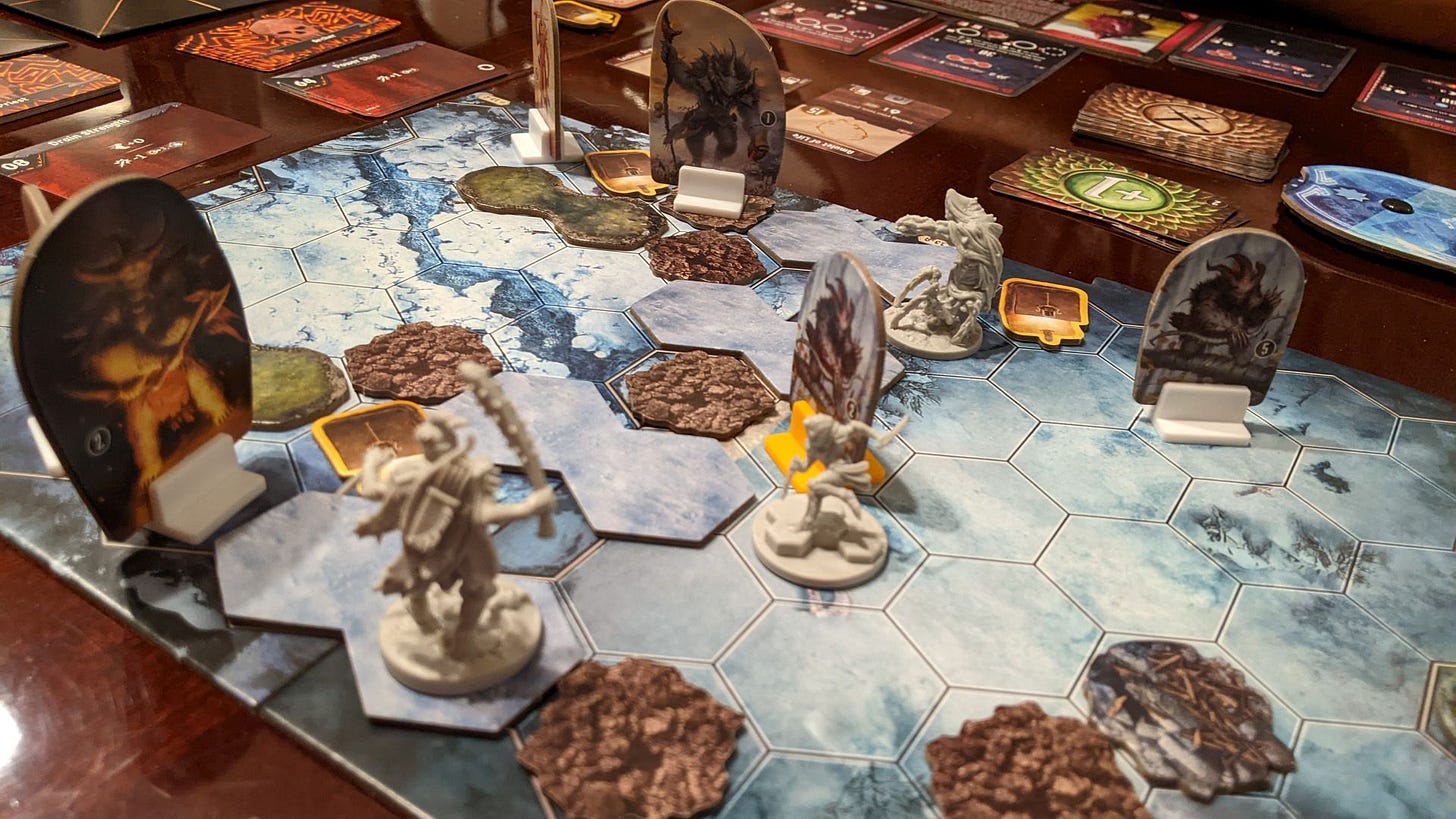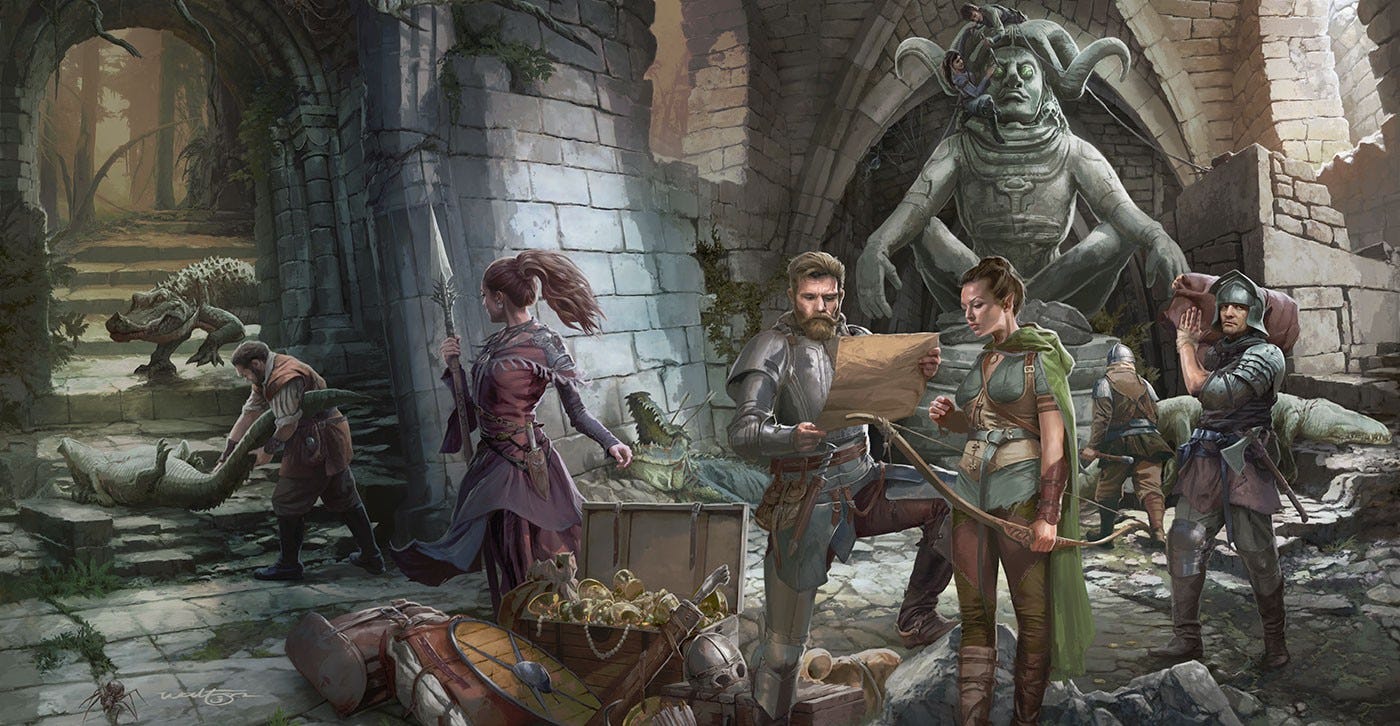The board game industry is facing a severe crisis as skyrocketing U.S. tariffs on imports—especially from China, where most games are manufactured—are taking their toll. The latest high-profile casualty: Wisconsin-based retailer Boardlandia, which announced the closure of its popular online store on April 17, 2025, citing unsustainable tariff-induced costs. This move underscores a growing trend of economic turmoil rippling through an industry valued at over $27 billion in 2024 and projected to nearly double by 2029.
Why Tariffs Are Crushing the Tabletop Industry
Tariffs imposed on board game imports from China surged dramatically from an initial 10% in February 2025 to a staggering 54%, with some reports citing tariff peaks up to 145% due to retaliatory trade actions. For an industry already working on razor-thin margins, these sudden costs are devastating.
Manufacturing board games in the United States isn't a viable alternative for most publishers. The reasons are clear:
Prohibitive Costs: U.S.-based manufacturing can cost up to six times more than Chinese factories. The infrastructure simply doesn't exist domestically to efficiently produce complex board game components like custom dice and detailed plastic miniatures.
Lack of Specialized Equipment: Most U.S. facilities can't match the specialized capabilities of Chinese factories, meaning production timelines would be significantly longer and quality harder to ensure.
This combination leaves many publishers with few alternatives, forced to either pause production or pass steep price hikes onto consumers—neither option sustainable for the long term.
Boardlandia: A Canary in the Coal Mine
Boardlandia, known for its extensive selection and competitive online prices, made headlines by shutting its online doors due to these tariffs. The retailer, while still operating a physical store in Appleton, Wisconsin, noted that tariff-induced price increases rendered online sales financially impossible due to fierce online competition and price sensitivity.
Here’s their post on the closure from their website.
But Boardlandia isn't alone:
Greater Than Games, creators of Sentinels of the Multiverse and Spirit Island, suspended operations entirely due to their products being stranded overseas with a crushing 145% tariff.
Cephalofair Games, makers of the acclaimed Gloomhaven, halted shipments of Gloomhaven: Second Edition, with $1.2 million worth of stock trapped in China.
Runaway Parade Games saw their costs jump astronomically, with container prices spiking from $100,000 to $245,000, nearly bankrupting the company and delaying critical projects.
Underdog Games, publisher of Trekking the World, drastically reduced their workforce to survive the immediate financial hit.
Why Not Just Produce Games in America?
Some might ask why publishers don’t just manufacture their games in the United States. The reality is complex:
High Labor and Material Costs: U.S. labor rates and material expenses significantly exceed those in China.
Lack of Infrastructure: Few U.S. factories specialize in tabletop game production, especially for intricate games requiring detailed plastic miniatures or custom components.
Scale and Speed: Chinese factories are highly specialized and capable of producing large quantities at competitive costs and high speeds—critical factors in an industry reliant on precise timelines, especially for crowdfunded games.
A Few Exceptions: Who's Making Games Domestically?
While rare, some companies successfully manufacture domestically. Notably:
Troll Lord Games, creators of the popular RPG Castles & Crusades, produces almost all products in the U.S., leveraging simpler components like printed materials that don’t require specialized Chinese manufacturing.
Publishers like DriveThruCards and The Game Crafter also produce games domestically, focusing on smaller-scale, print-on-demand operations.
However, these remain exceptions rather than the rule. The majority of high-profile board games rely on Chinese manufacturing to remain financially viable and competitively priced.
What Comes Next?
The industry’s future hinges on adaptation, and the outlook isn't encouraging. Companies are already responding with:
Price Increases: Publishers like Mayday Games and Van Ryder Games raised prices to offset tariff costs.
Simpler Games: Some publishers pivoted to simpler, cheaper-to-produce games with fewer components.
Exploring Alternative Locations: While countries like Vietnam or Turkey offer potential alternatives, they often face their own tariffs or lack capacity.
Direct-to-Consumer Models: Some companies are bypassing retailers entirely, threatening local game stores' viability.
Without policy shifts or significant industry restructuring, a leaner, pricier future seems inevitable—one that could significantly shrink the booming board game culture.
Final Thoughts
Boardlandia’s online closure is a stark warning sign. If tariffs remain unchecked, expect more casualties as the vibrant board game community faces tough economic realities. While companies like Troll Lord Games demonstrate successful domestic production, they're exceptions in an industry heavily reliant on international manufacturing. Unless changes occur rapidly, the golden age of tabletop gaming may face a severe contraction, fundamentally altering the landscape of board game publishing and retail.
News compiled by Derek Gibbs and Edgar B.
Pixels, Pop Culture, and the Paranormal! D/REZZED provides Balanced and Based Gaming, Pop Culture, and Paranormal News. Opinions expressed do not necessarily reflect those of hosts, editors, other contributors, affiliates, sponsors, or advertisers. Articles may include affiliate links; we may earn commissions on purchases made through these links. Any products or services received for review are disclosed, as are sponsored posts.





